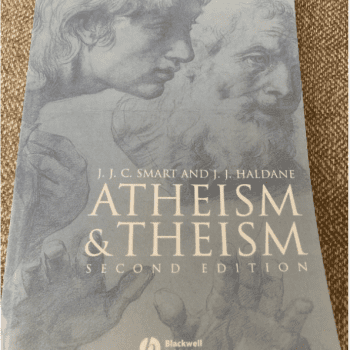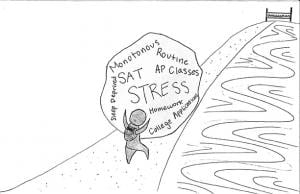As many of you may know, the state of Nevada is feeling the brunt of the current economic downturn. For this reason, the state’s institutions of higher education are being forced to make deep budget cuts. Among the cuts proposed by the University of Nevada, Las Vegas (UNLV) is the elimination of its philosophy department. Below is the letter I sent last night to UNLV President Neal Smatresk. I cc’d it to the chancellor of the university system (Daniel Klatch) as well as each of the members of the Board of Regents. Those interested in offering their support for UNLV’s philosophy department should go here. What follows is my letter:
forced to make deep budget cuts. Among the cuts proposed by the University of Nevada, Las Vegas (UNLV) is the elimination of its philosophy department. Below is the letter I sent last night to UNLV President Neal Smatresk. I cc’d it to the chancellor of the university system (Daniel Klatch) as well as each of the members of the Board of Regents. Those interested in offering their support for UNLV’s philosophy department should go here. What follows is my letter:
March 29, 2011
President Neal Smatresk
Office of the President
University of Nevada, Las Vegas
4505 S. Maryland Parkway
Las Vegas, NVDear President Smatresk:
I am an alumnus of UNLV (B.A., 1983), and a proud graduate of its philosophy program. I am also a former full-time UNLV faculty member (Lecturer, 1989-1996) as well as a graduate of Bishop Gorman High School in Las Vegas (1978). Many of my family members, including my parents, still reside in southern Nevada. I am presently a tenured full-professor in the philosophy department at Baylor University.
I am writing to encourage you not to eliminate UNLV’s philosophy department. Although I understand and appreciate the economic realities that a university president in your position must confront, I want to make a case that philosophy may be a university’s most important discipline. First, philosophy teaches students how to think critically for the sake of the common good. When I was on the faculty of UNLV, we were responsible to teach one of the most important core courses offered by the university, “Reasoning and Critical Thinking.” Unlike other disciplines in which one is taught how to think about a particular subject, in philosophy we teach students how to think about thinking. I cannot tell you how many of my former UNLV students have told me how important that course was for their work in a variety of fields and endeavors including law, medicine, business, law enforcement, and even home schooling!
Unfortunately, as the academy has become more fragmented, the study of critical thinking has diminished, largely based on the mistaken belief that one can study a university subject without learning how to, or what it means to, reason well. Not surprisingly, a groundbreaking and unprecedented study by New York University sociologist, Richard Arum, has concluded that college students are not learning to think critically. Published earlier this year in the book, Academically Adrift: Limited Learning on College Campuses (University of Chicago Press, 2011), Arum “followed 2,322 traditional-age students from the fall of 2005 to the spring of 2009 and examined testing data and student surveys at a broad range of 24 U.S. colleges and universities, from the highly selective to the less selective.” The study found that “forty-five percent of students made no significant improvement in their critical thinking, reasoning or writing skills during the first two years of college, according to the study. After four years, 36 percent showed no significant gains in these so-called ‘higher order’ thinking skills.” It seems to me that UNLV should help lead the way in resisting this trend. Minimally, this should mean keeping its philosophy department.
Second, the questions that are the most contested in the public square are at bottom philosophical ones. Whether it is the distribution of state resources for education, protecting the environment, the nature of liberal democracy, or the relationship between faith and reason, how one should think about these questions depends on what understanding of the good, the true, and the beautiful is most rationally defensible. The fact is that no other discipline in the academy has the conceptual tools and resources to address these questions in as rigorous and clear a way as does philosophy. Thus, to eliminate the philosophy department would be tantamount to saying to the community that the university and its members are qualified to discuss virtually anything except those things that are the most important to our common life.
Thank you so much for your time and consideration. If there is anything I can do to assist you or the university on this matter, please do not hesitate to contact me.
Sincerely,
Francis J. Beckwith, MJS, PhD
Professor of Philosophy, Baylor University












